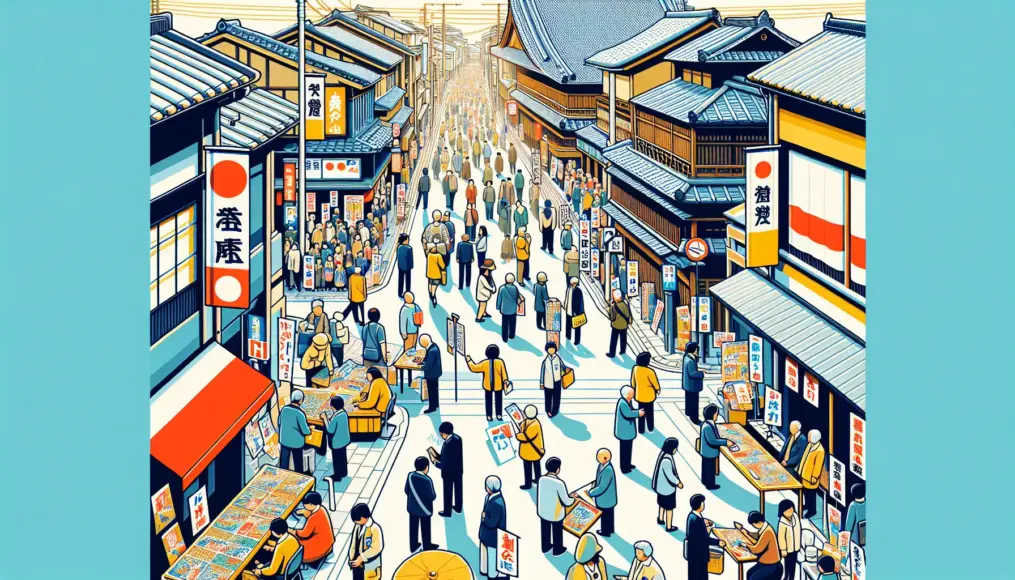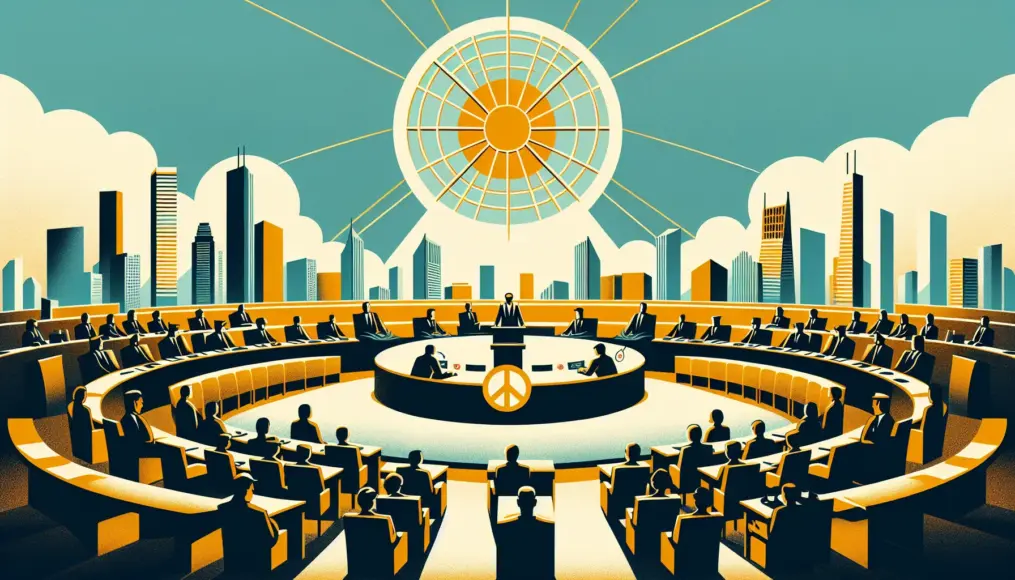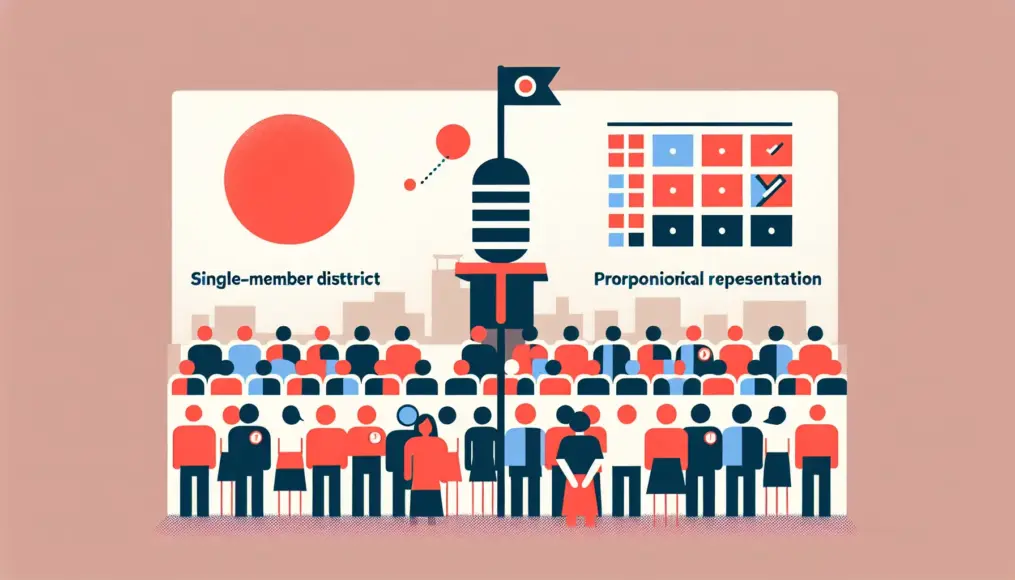Election campaigns and political activities play a significant role in shaping our society. Looking back at history, we can see how the evolution of elections in post-war Japan and various political events have influenced the landscape of political campaigning. In today’s world, where citizen participation is highly valued, how has political activity contributed to societal change?
In this article, we’ll delve into the changes in the electoral system and their cultural implications. Let’s explore how politics and culture intertwine and what future prospects they may bring.
- Reflecting on the historical context of election campaigns
- Considering how political activities have transformed society
- Exploring the impact of modern electoral systems on culture
The Historical Context of Election Campaigns in Japan
Election campaigns have played a crucial role in Japan’s political culture. Particularly in post-war Japan, the evolution of the electoral system and increasing civic engagement led to significant changes in how election campaigns were conducted. Understanding the nature of these campaigns and their impact on society is essential for grasping contemporary politics.
In this section, we will explore the evolution of elections in post-war Japan, focusing on key political events that shaped the historical background of election campaigns. Let’s delve into how these campaigns have developed and how they connect with the consciousness of the citizens.
The Evolution of Elections in Post-War Japan
After World War II, Japan’s electoral system underwent a major transformation. The new election law enacted in 1947 granted voting rights to all adults, laying the groundwork for democracy. This legislation encouraged citizen participation in election campaigns and fostered a political environment where diverse opinions could be represented. Additionally, the methods of campaigning evolved, and with the advancements in mass media and the internet, information began reaching a wider audience.
Election campaigns are not merely about promoting candidates; they also serve as vital platforms for discussing various societal issues. As political activity intensified, these campaigns became a driving force for raising public awareness and encouraging political participation.
- The post-war election law granted voting rights to all adults.
- Campaigning methods diversified, leading to increased information dissemination.
- Political activities played a role in enhancing public awareness and encouraging civic engagement.
Key Political Events and Election Campaigns
Japan’s political history is marked by several significant events that have greatly influenced election campaigns. Notable examples include the security protests of the 1960s and the political reform movements following the collapse of the economic bubble in the 1990s. These events affected the style and content of election campaigns, prompting changes in political consciousness.
The security protests, in particular, sparked greater interest in politics among the public, leading to the emergence of new campaigning styles, especially among the youth. As political activities began to reflect citizens’ voices more directly, election campaigns transformed from simple candidate promotions into essential platforms for aggregating societal opinions.
- The security protests encouraged civic engagement.
- The political reform movements of the 1990s influenced election campaigns.
- Election campaigns became a venue for gathering societal opinions.
The Interplay Between Political Activity and Society
Political activity serves as a vital means of connecting citizens directly through election campaigns. By fostering civic engagement, interest in politics can grow, ultimately impacting society as a whole. When citizens express their opinions and participate in political activities, they harness the power needed to create a better community.
In this section, we’ll explore the importance of civic engagement and the societal changes that political activities can bring about. Let’s take a closer look at how the voices of citizens are reflected in politics and how society evolves as a result.
The Importance of Civic Engagement
Civic engagement is a fundamental element of democracy. When citizens participate in politics through election campaigns, they gain the power to influence policy decisions. By ensuring that the opinions and demands of citizens are represented, a wider range of perspectives can be incorporated into policy-making. This enhances the transparency and credibility of politics, creating an environment where public opinion is valued.
Moreover, when citizens actively engage in political activities, it often raises awareness of societal issues and sparks movements aimed at finding solutions. For instance, community initiatives and grassroots movements can foster cooperation to address specific challenges.
- Civic engagement forms the foundation that supports democracy
- Citizen opinions influence policy decisions
- Political activities raise awareness of social issues
Societal Changes Brought by Political Activity
Political activity extends beyond just election campaigns; it influences society in various ways. As issues raised during elections are discussed and solutions sought, societal values and culture can shift. This is particularly true for pressing contemporary issues such as environmental concerns and human rights, where political activities play a significant role.
Additionally, as political engagement grows, it is expected that awareness among younger generations will increase, nurturing the leadership of the next generation. This builds a foundation for a future society that moves in a more positive direction.
- Political activity serves as a catalyst for changing societal values and culture
- Awareness of contemporary issues increases
- Fosters the development of next-generation leadership
The Evolution of Electoral Systems and Their Cultural Impact
The evolution of electoral systems has significantly influenced political engagement and citizen awareness. In Japan, the electoral framework has adapted over time, forming the foundation of the current democratic society. This evolution dictates how election campaigns and political activities are conducted, while also exerting various influences on culture.
In this section, we will reflect on the history of electoral reform and explore how the electoral system has changed over time. We will also consider the impact of the electoral system on culture, shedding light on the relationship between politics and cultural development.
A Brief History of Electoral Reform
Japan’s electoral system underwent significant changes following the establishment of democracy after World War II. Notably, the new electoral law enacted in 1947 granted voting rights to all adults, marking a crucial step toward ensuring fair elections. This legislation encouraged greater citizen participation in politics and allowed for a more diverse array of opinions to be represented.
Since then, the electoral system has continued to be revised, incorporating proportional representation and reevaluating electoral districts. These changes have transformed the styles of election campaigns and the processes by which candidates are selected, leading to increased opportunities for citizens to engage in politics.
- The 1947 electoral law granted voting rights to all adults.
- Citizen participation in politics was promoted, allowing for diverse opinions to be represented.
- Revisions to the electoral system have changed the style of election campaigns.
The Impact of Electoral Systems on Culture
The evolution of electoral systems does not merely change the mechanics of politics; it also influences cultural dynamics. Through election campaigns, citizens’ awareness of political matters has heightened, fostering a culture where political participation is seen as a norm. This shift has led to increased interest in political issues, contributing to the maturation of society’s overall culture.
The influence of electoral systems on culture is particularly pronounced among younger generations. Engaging in elections has encouraged awareness of social issues, creating an environment conducive to nurturing the next generation of leadership. As a result, the future of culture and values is shaped by a more proactive involvement in politics.
- Electoral systems encourage citizen participation in politics and contribute to cultural maturation.
- Increased interest in political matters has a broader societal impact.
- An environment is emerging that fosters leadership among younger generations.
The Relationship Between Politics and Culture in Modern Japan
In contemporary Japan, politics and culture are deeply intertwined. Political actors are increasingly incorporating cultural elements into their campaigns and activities, allowing them to garner broader support. To understand how politics impacts citizens’ lives, it’s essential to consider its relationship with culture.
This section will explore how political actors and culture merge and influence each other. We will also discuss future prospects for the relationship between politics and culture in Japanese society.
The Fusion of Political Actors and Culture
In today’s electoral campaigns, political figures are skillfully integrating cultural elements to attract more supporters. Campaigns that utilize music and art, as well as innovative political activities harnessing social media, exemplify this trend. By doing so, they aim to spark interest in politics, particularly among younger generations.
Moreover, it’s crucial for political actors to bridge the gap with citizens through cultural events and local activities. This approach makes politics feel more accessible, encouraging greater participation in political activities. The fusion of culture and politics contributes to the deepening of democracy.
- Political actors are gaining support by incorporating cultural elements.
- New forms of electoral campaigns utilizing music and art are emerging.
- Bridging the gap with citizens promotes political participation.
Future Prospects
Looking ahead, the relationship between politics and culture in Japan is expected to deepen further. Particularly with advancements in digital technology, more citizens will find it easier to engage in political activities. This shift will create opportunities for politics to reflect diverse opinions and foster a common understanding within society.
Additionally, as globalization progresses, it’s important to consider the influences from the culture and political activities of other countries. The intersection of different cultures and values could give rise to new political approaches and initiatives. Embracing these changes and allowing politics and culture to develop together will be key to building a sustainable society.
- Digital advancements will facilitate greater citizen engagement in politics.
- Influences from other cultures should also be taken into account.
- The coexistence of politics and culture is vital for a sustainable society.
Summary
In this article, we explored how election campaigns and political activities have shaped Japanese society and culture. Starting with the evolution of the electoral system after World War II, we examined various perspectives, from the importance of citizen participation to the integration of politics with modern culture. A key takeaway was how election campaigns contribute to the deepening of democracy and drive social change.
Looking ahead, we highlighted how advancements in digital technology and interactions with diverse cultures could open up new possibilities for political engagement. This shift is expected to reflect a broader range of opinions in politics and contribute to building a sustainable society.
- Election campaigns encourage citizen participation, fostering a deeper democracy.
- Political activities are closely intertwined with culture, influencing and shaping each other.
- The advancement of digital technology may enhance future political participation.
The relationship between politics and culture will remain an important theme, and it’s essential for each of us to observe these changes and engage actively. We’d love to hear your thoughts and feedback in the comments!



Comment